Out of Syria’s Eastern Ghouta, not quite home
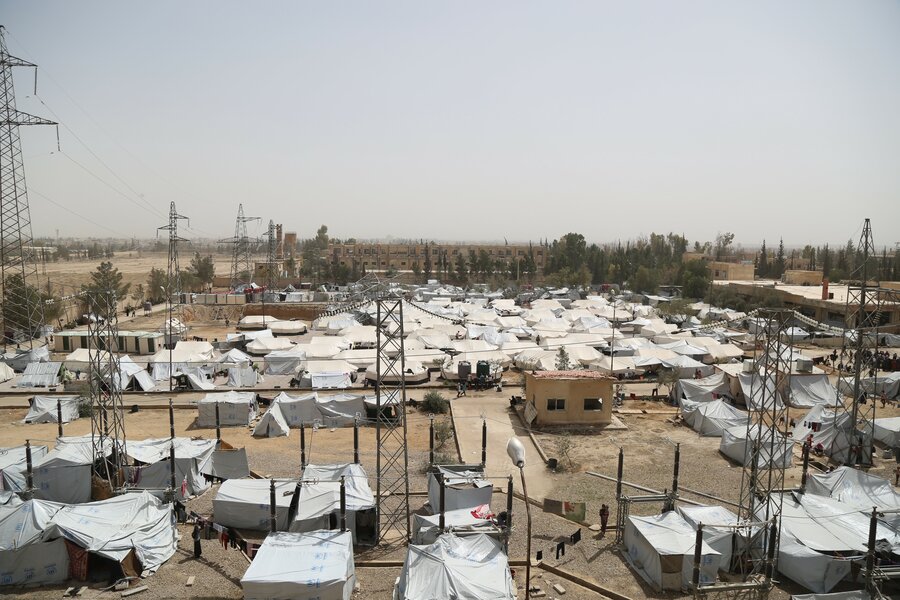
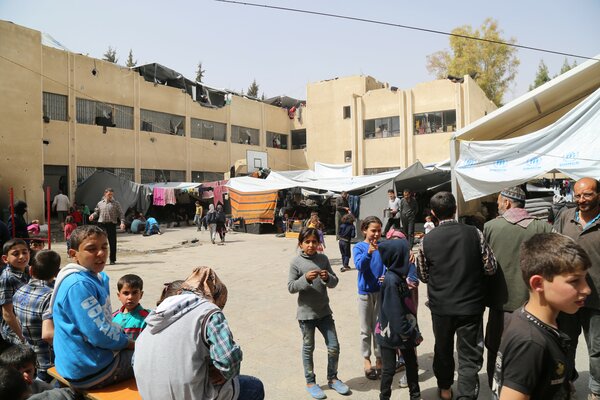
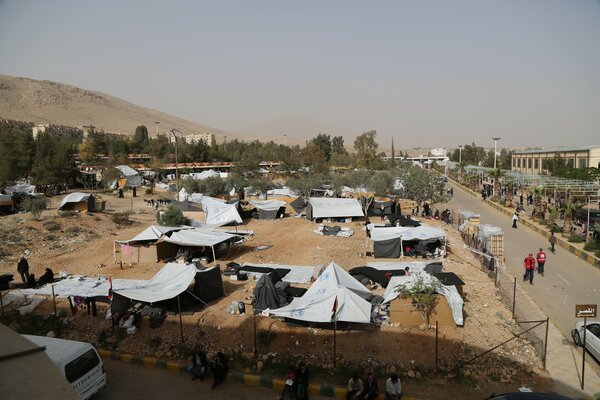
Among those displaced, some families feel they have been delivered to safety after five years of living under siege while others yearn to go back to their homes despite the hardship. Here are some of their voices:
A high price for safety
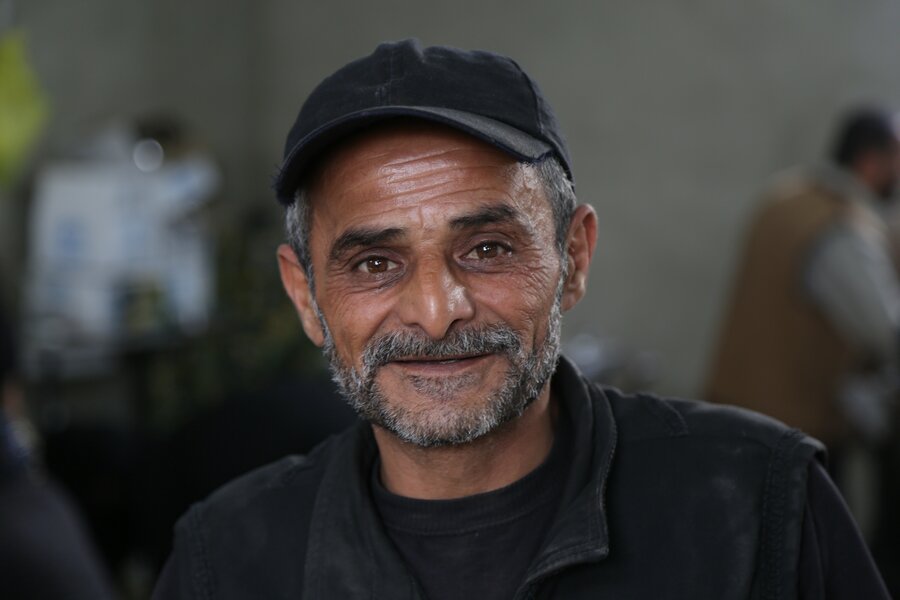
"We lived under extreme conditions that killed in us the ability to care for others."
It took Abo Sayah three weeks to reach Hurjelleh shelter in rural Damascus after managing to escape his hometown of Hamourieh in Eastern Ghouta. The perilous journey cost him the life of his 10-year-old son.
"I wanted to get out of Hamourieh by any means necessary because life had become unbearable there," says Abo Sayah. "As we took the journey out a bullet hit my son in the head. He died too soon."
He buried his son where he was shot. The family carried on out of the town to one of the shelters set up outside Eastern Ghouta. Arriving at Hurjelleh shelter, Abo Sayah's family began receiving food and other humanitarian assistance and his two daughters were enrolled in school.
Abo Sayah believes that beyond food and shelter, young minds in Syria need psychological support to help heal their trauma and memories of violence.
"Our children lived a long time in isolation while under siege. They never learnt how to deal with others. We lived under extreme conditions that killed in us the ability to care for others. People stopped sharing food with one another when it became scarce. Times were tough," he recalls. "All of us are losers in this conflict, we lost loved ones, homes, towns, livelihoods. We must work hard towards a better future for our children," he says.
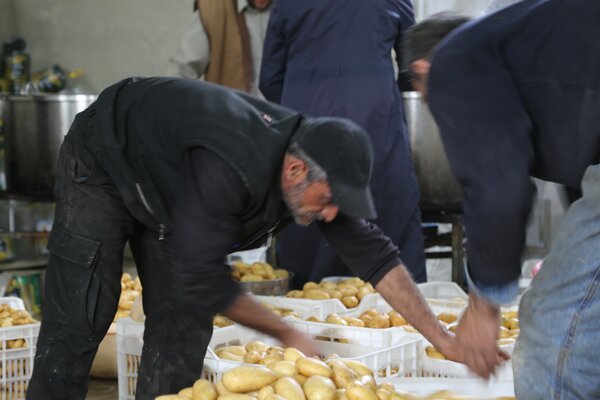
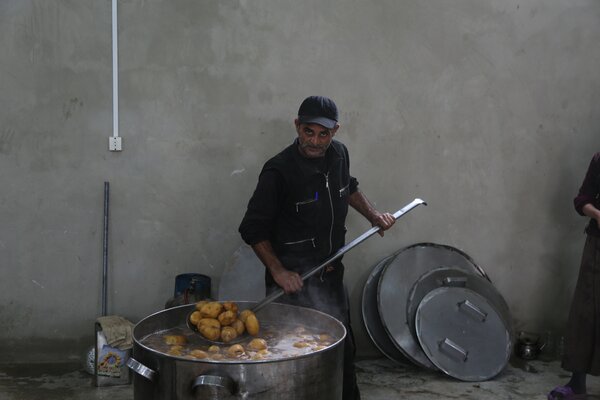
Can you crave what you can't afford?

"My children longed for fruit that we we were unable to buy for them."
Um Wael, her husband and seven children live in a tent in one of the shelters in Adra city, some 30 km away from Damascus. To get to the shelter, they left their home and boarded a bus carrying a few belongings.
For the 42-year-old mother, the hardest part of living under siege was watching her children crave marketplace food that she could not afford. The siege of her hometown Beit Sawa had driven prices up beyond the reach of most people.
"My children longed for fruit that we we were unable to buy for them," says Um Wael.
The only food they had was bread— an insufficient diet that led to malnutrition among her youngest children over time. At the shelter, Um Wael receives weekly food rations and bread from WFP, along with other humanitarian support.
Besides food and shelter, there's the peace of mind. Um Wael 's 9-year-old daughter, Noura, remembers waking up scared at night and crying because of the constant sound of mortar shelling and fighting. Now she sleeps soundly through the night.
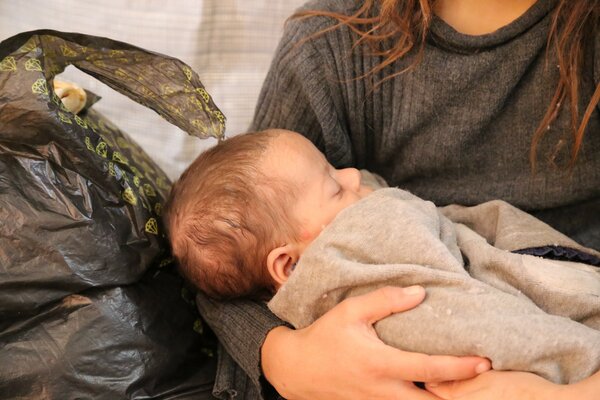
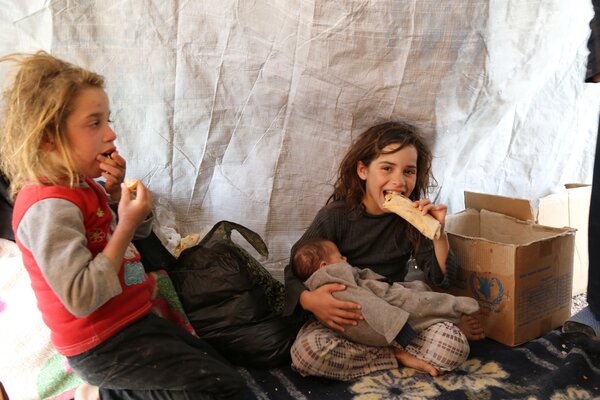
Losing your fears, but missing home
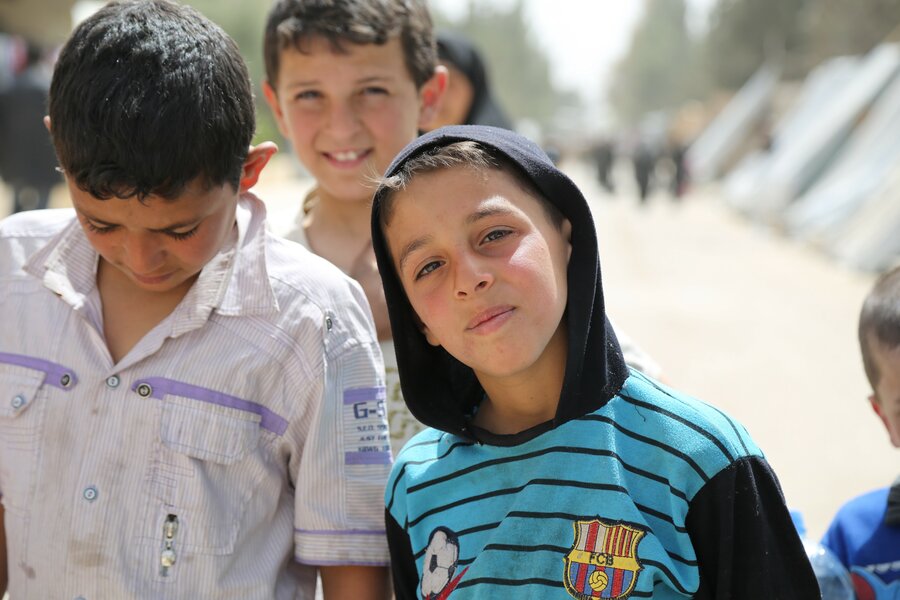
Ten-year-old Ahmad comes from Jisreen and has been living for two weeks in one of the Adra shelters with his family and some neighbours. Despite his displacement, Ahmad is happy to be surrounded by his family and friends and says he spends the day playing with them. "I lost some of the fear I used to live in, but I miss my home," he says.
New lives, new friendships
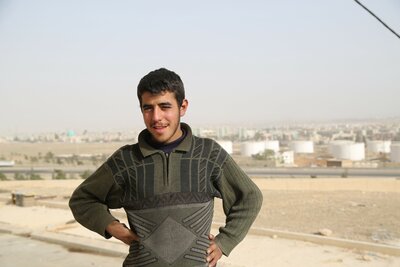
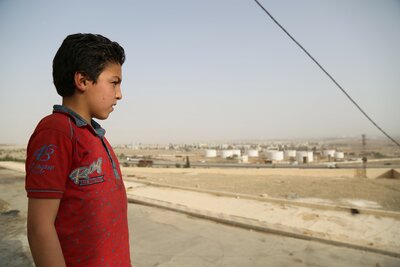
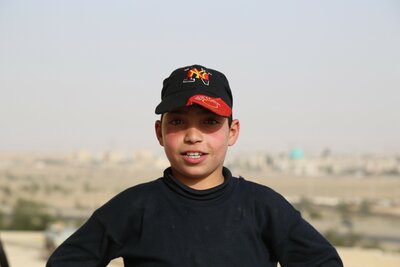
"Every day we sit on this rooftop to watch our towns from the distance. We hope to go back one day."
In a nearby camp called Fayhaa Al Sham, new friendships blossom. Mohamad, Jamil and Abdo come from three different towns in Eastern Ghouta. "We never knew each other before. But ever since we arrived here we've become friends. Every day we sit on this rooftop to watch our towns from the distance. We hope to go back one day," they say.
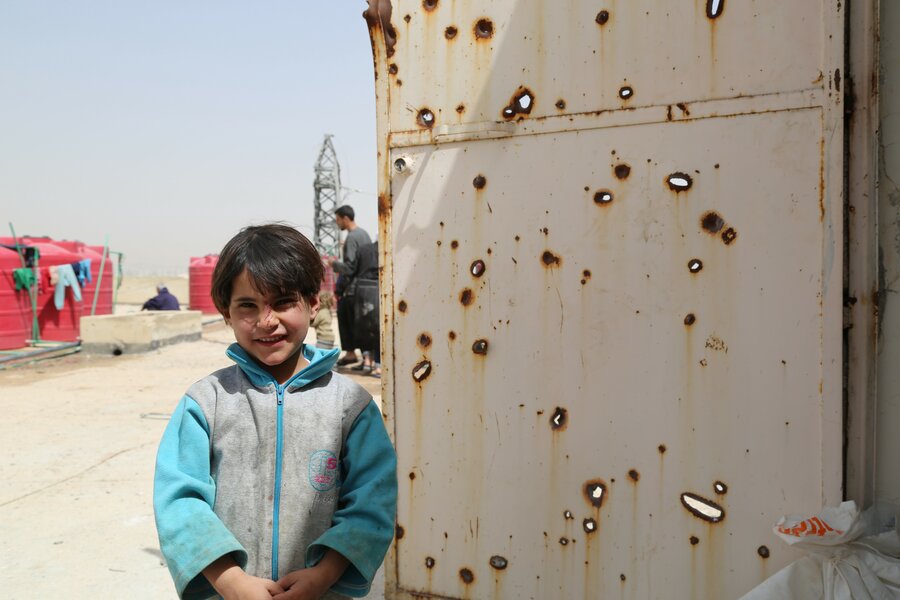
Not very far from the boys was 4-year-old Zainab from the town of Beit Naym. So happy and excited to be able to run freely in the open air, she fell and scratched her nose. "Just look how happy she is, being able to play after months of fear and crying," says her mother.
A race against time
With families streaming out of Eastern Ghouta, overcrowding continues to be a problem at makeshift shelters in Rural Damascus. Construction workers, many of them volunteers, are in a race against time to rehabilitate the premises of the makeshift shelters, where there are a number of destroyed buildings, to accommodate the growing number of displaced people.
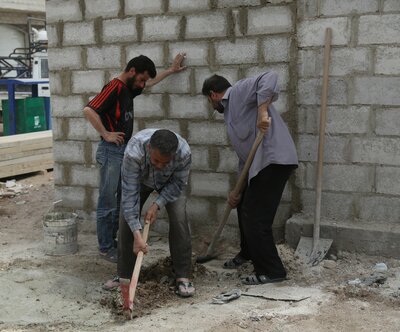
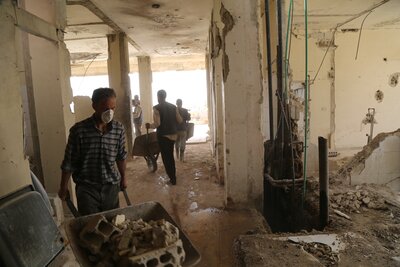
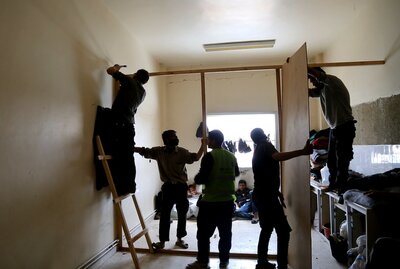
Since early March, around 80,000 people have streamed out of Eastern Ghouta. The World Food Programme is on the ground providing life-saving food and nutritional assistance to 50,000 people who are now living in eight shelters in Rural Damascus.
